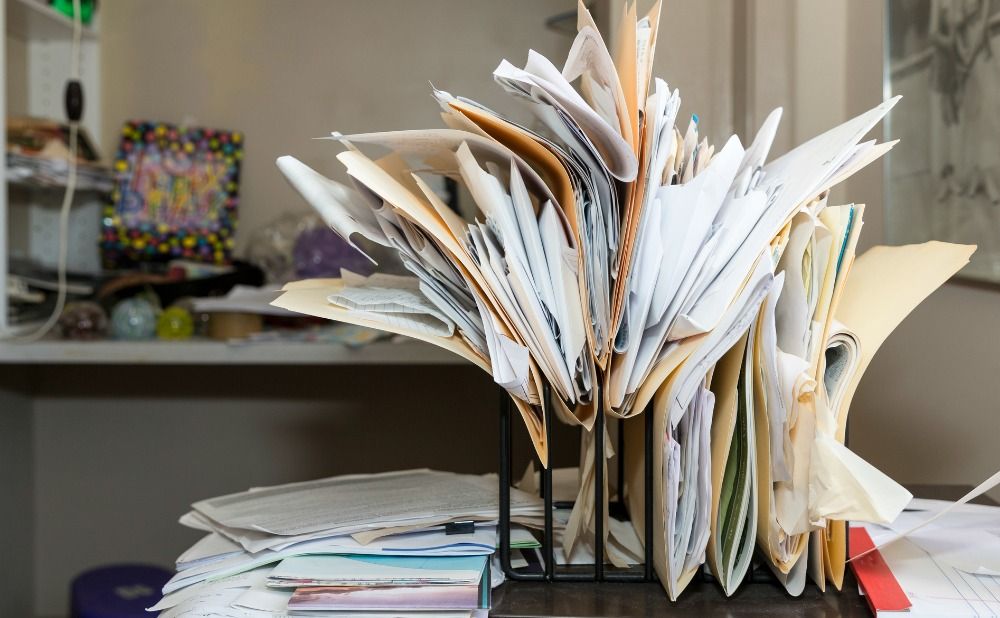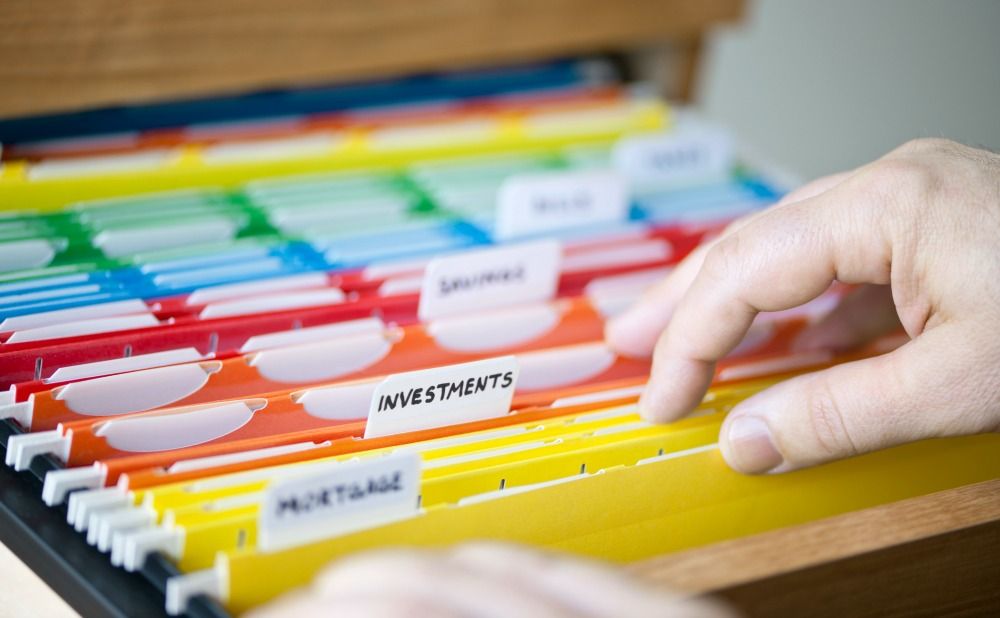
It seems that we all suffer the frustrating feeling of losing something one time or another. However, some of us are worse about keeping track of our things than others.
Simply Orderly shared some statistics about just how bad some of us are at staying organized:
- The average American will spend 1 year of their life looking for lost items
- More specifically, the average American will spend 55 minutes a day looking for lost items
- The average office employee spends 1.5 hours a day looking for things
- The average executive spends nearly 150 hours a year looking for lost information
In addition, Simply Orderly goes on to state that more than 1 in 4 Americans want to be more organized.
These statistics show us that no one is immune to losing things on a regular basis.
However, these statistics also show us that people genuinely want to become more organized.
As an Annapolis landlord, you should make organization of your rental property business a priority.
With all of the important documents you need to keep on hand, it is imperative you develop a system so you can collect, update, and retrieve information easily.
After all, losing your investment property information is going to make things difficult for everyone involved.
If you self-manage your Anne Arundel County rental property, and are seeking ways to get organized, keep reading to find out some of the best ways to do just that.
The success of your rental property business might depend on it.
5 Steps to Take to Become a More Organized Annapolis Landlord
1. Document Everything
It should go without saying that documenting everything related to your rental property, and the tenants that lease from you, is crucial to your rental property business.
This includes all communication – email, text, and written correspondence – as well as formal documents related to the purchase of your rental property, the lease agreement signed between you and your tenants, and any rental applications you have received for your rental property.
Keeping these documents safe and secure, as well as easily accessible, will help smooth out any misunderstandings you may have in the future. This is especially true if a landlord-tenant dispute arises.
The more you can prove with physical documentation, the safer you will be.
2. Create a File for Each Property

It is not enough to keep all documents related to your rental properties and the tenants that lease from you in one huge and unorganized pile.
One of the best things you can do from the very beginning (as in the first time you ever lease your investment property to a tenant), is to create an organized filing system for each property.
In addition, you may want to consider creating sub-folders as a way to stay ultra-organized, and prevent the misplacement of any documents.
If you only have one property in your rental property portfolio, that’s okay.
Create a folder anyway with the documents mentioned above, as well as anything else that relates to the rental property throughout the lease term.
This may include things like:
- Inspection Reports. Document both the move-in and move-out inspection reports, photos and video of the property’s condition, and any maintenance issues addressed prior to move-in. Don’t forget to add in any routine inspections you conduct throughout the lease term, either.
- Tenant Information. The rental application, background check, ID copies, lease agreement, references, employment history, and vehicle information for each tenant you lease to should be saved in a secure location. This is personal information you tenant does not want others to have access to.
- Tenant Financials. Keep record of the security deposit you collect, and any additional fees you charge your tenant, the rent amounts you collect each month, and photocopies of checks that you deposit.
- Property Expenses. This can include things like advertisement costs, maintenance and repair costs, upgrade or improvement expenses, service agreements made with contractors, and invoices for repairs made to the property by someone other than yourself.
- Notices, emails, texts, and written correspondence between you and your tenant should be documented at all times for resolving future disputes.
- Rental Property Information. Again, anything related to the purchase of your investment property should be saved. This means the property deed, insurance policies, tax information, inspection certifications, mortgage agreement, and loan information. In addition, you should keep copies of your Maryland rental registration paperwork as well.
By keeping everything in one designated place, you will be able to access any information you need, at any time, without having to worry that something is missing.
3. Go Digital
Creating a physical filing system of your rental property business is an excellent idea.
However, things happen (e.g. floods, fires, or worse, thievery). And, once physical paperwork is permanently destroyed or lost, it is gone forever.
That is, unless you have saved copies elsewhere.
Saving all of your business documents online as a backup to your printed paperwork is critical to avoiding problems that result from lost information.
Invest in an efficient scanner, and scan all documents you need to save into a secure place.
One great place to save your digital folders is in the “cloud.” This way, they are accessible at all times, from any device.
4. Keep a Calendar

Running a business is a tough job.
And, with tough jobs come lots of appointments, meetings, and deadlines.
Whether you like to stay traditional and use a pen and paper calendar, or invest in an online time management system, complete with calendaring capabilities, be sure to find a system that works for you and jot down any important dates.
Here are some important dates all Anne Arundel County property owners should remember:
- Routine inspections work well if you conduct them seasonally. This way you can ensure your tenants are caring for your property throughout their lease term, and handle any minor maintenance issues before they become major.
- Speaking of maintenance, any responsibilities that you agreed to at the time of the lease agreement signing (e.g. air filter replacement, landscaping, pool maintenance, appliance inspections, etc.) should be calendared so you don’t forget to fulfill your obligations to your tenant.
- Vacancy Showings. No landlord wants to deal with excessive vacancies, however sometimes it happens. If you have a rental property that needs a tenant, schedule property showings so you can get your property filled as soon as possible.
- Lease Renewals. One of the best ways to increase your chances of getting a lease renewal is to be proactive about it. Make sure you give your current tenants plenty of time to decide whether to renew or not, especially if you are considering a rent increase. This professional approach is also a great way of showing your tenants you care about them and want them to stay with you.
These are only some of the things you should calendar as a way to become a more organized landlord.
There are plenty of other important reminders you should make note of, and using a calendar is one way of staying organized.
5. Employ an Annapolis Property Management Company
One of the best ways to stay on track as an organized landlord is to enlist the help of your trusted Annapolis property management company.
With a professional, experienced, and established property management team helping you along the way, your chances of becoming disorganized are slim-to-none.
This is because with the right property manager, every document you need that relates to your rental property business will be safe, secure, and accessible at all times.
If you are looking for a property management company to help you with your bookkeeping needs, contact Bay Management Group today.
We can help with saving documents related to your rental properties, tenants, and lease agreements. In addition, we can help you schedule routine inspections, property showings, and anything else you can think of.
At Bay Management Group, we pride ourselves in providing the utmost in customer service. This applies to tenants in your rental property, and you as well.
We keep records of your property’s monthly and yearly profits and expenses, ensure all communication is recorded to prevent disputes, and even encourage online rent collection procedures so that you always have records of when rent was paid, by whom, and for how much.
There is so much to that goes into being a successful Annapolis landlord, and losing things should not be one of them.
Let Bay Management take care of the administrative side of your rental property business, while you simply enjoy the positive cash flow and extra free time.
